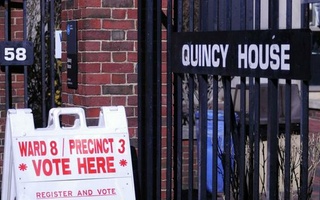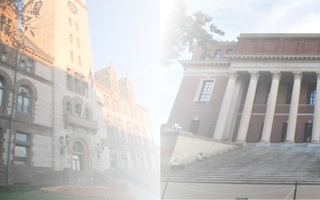CONSTANT VIGILANCE
Instead, many of the candidates underscored the need for an institutionalized response system for everyday criminal activity.
While crime in Cambridge overall has dropped by nine percent compared to last year, Cambridge has seen a jump in violent crime this semester to the tune of an 18 percent increase from last month, according to a report by the Cambridge Police Department.
City council candidates stressed that they believed most of the violent crimes taking place in Cambridge lacked a pattern and as such are more difficult to control.
“Isolated incidents are hard to deal with except on a case-by-case basis. It's easy if the same street corner is producing assaults, but that’s not the way it works,” Mello said. “They’re almost random—you are not seeing them on a regular basis in a regular place—so how are the cops going to deal with that?”
Still, several candidates said that Cambridge needs stronger policing, conducted by both law enforcement officers and the community in general. Candidate Dennis Benzan, for example, said that he would welcome the establishment of a new Cambridge Police Department station in Harvard Square or Central Square.
“We have to keep increasing police presence,” Benzan said. “People feel afraid even in Cambridge.”
Candidate James M. Williamson also suggested incentivizing collaboration between police and residents to reduce crime rates.
Even as candidates offered recommendations for reducing crime, several said that Cambridge is already significantly safer than its peer cities.
“There is no neighborhood in which I hesitate to walk,” said candidate Elie Yarden.
IMPROVING INFRASTRUCTURE
For candidate Dennis Carlone, improving safety infrastructure should begin with the more isolated areas of the city, which he said are loci for crime. One of those places for Carlone was the Christian Science Center in Boston, where he said that he was robbed and mugged on one of his first trips to New England. At the time, Carlone was a New York resident.
“The difference in Manhattan [was that] there were many people around,” he said. “When I was mugged there was nobody there.”
In order to reduce such isolated incidents, some candidates suggested improving public transportation hours and routes in Cambridge. Phillips said she thinks running public transportation all night and “criss-cross[ing]” routes across the city could prevent opportunistic crime, for example.
“Cambridge Street is busy all night long. It’s a very safe street to be on,” she said. “Broadway isn’t.”
Read more in News
2014 President's Challenge Awaits Budding EntrepreneursRecommended Articles
-
No Murders Occur in Cambridge in 2010The Cambridge Police Department reported that last year saw no murders in the city, just the fourth time in the past 50 years that no murders have occurred in Cambridge.
-
Students Volunteer For GOP HopefulsWith the Republican primaries still in a deadheat, the Harvard Republican Club has shied away from making an endorsement and maintained a liason structure that allows for members to contribute to the Republican campaigns of their choice.
-
Cambridge Sees Dip in Crime Rates in 2011The Cambridge Police Department reported on Wednesday that crime in Cambridge has reached a historic low. The Department responded to the lowest registered number of incidents since 1963.
-
 What You Need To Know For Election Day
What You Need To Know For Election Day -
Boston to Vote for Candidates to Advance in General Mayoral ElectionToday marks the first time in 20 years that Boston will vote on a mayoral ballot that does not include so-called "Mayor for Life" Thomas M. Menino. Instead, Bostonians will choose two of 12 candidates in the open preliminary elections to advance to a general election on Nov. 5.
-
 Town and Gown
Town and Gown













